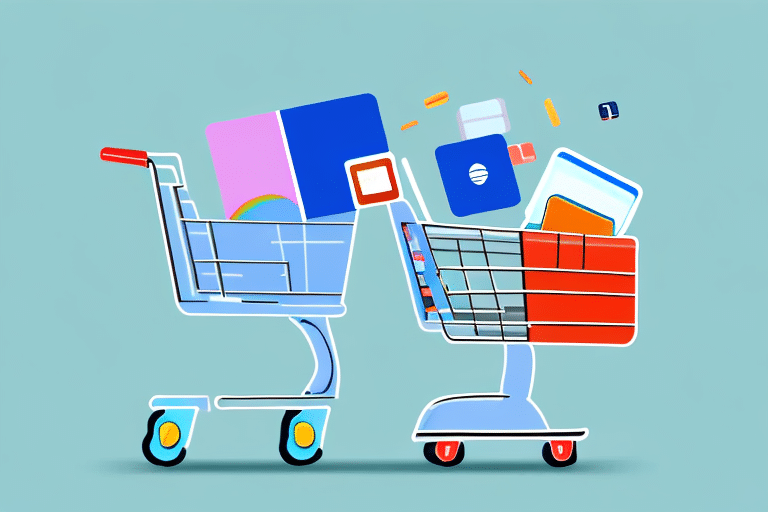The Importance of Black Friday and Cyber Monday for Ecommerce
Black Friday and Cyber Monday are pivotal events in the ecommerce calendar, signaling the commencement of the holiday shopping season. According to Statista, online sales during Black Friday reached approximately $9 billion in the U.S. alone in 2023, highlighting the immense consumer interest during this period.
These events drive significant traffic and sales opportunities online, allowing ecommerce businesses to:
- Boost Revenue: The surge in consumer spending during these days can lead to substantial sales increases.
- Attract New Customers: Exclusive deals and discounts can draw in customers who may not have engaged with your brand previously.
- Build Brand Loyalty: Providing exceptional deals and a seamless shopping experience can foster long-term customer relationships.
Furthermore, Black Friday and Cyber Monday have transcended national boundaries, evolving into global shopping events. This globalization enables ecommerce businesses to extend their market reach internationally. However, increased competition necessitates a well-crafted marketing strategy to effectively stand out and capture consumer attention during these peak shopping periods.
Reviewing Past Performance and Setting Strategic Goals
Analyzing last year's performance is crucial for setting realistic and achievable goals for the upcoming Black Friday and Cyber Monday events. By examining sales data, ecommerce businesses can identify trends and patterns in consumer behavior. For instance, Shopify reports that understanding past sales performance helps in forecasting demand and managing inventory effectively.
Analyzing Sales and Marketing Data
Review metrics such as total sales, average order value, and conversion rates to gauge overall performance. Identifying which marketing channels—be it email campaigns, social media, or PPC advertising—driven the most traffic and sales can inform budget allocation and strategy refinement for the current year.
Identifying Areas for Improvement
Pinpoint underperforming products, ineffective marketing tactics, or logistical challenges faced last year. Addressing these areas head-on can enhance operational efficiency and customer satisfaction. For example, if website load times were an issue, investing in better hosting services or optimizing site speed can prevent potential sales losses.
Conducting Market Research and Identifying Key Trends
In-depth market research is essential to stay ahead of the competition and align your offerings with current consumer demands. According to a report by eMarketer, understanding global ecommerce trends can significantly impact sales performance during peak shopping seasons.
Competitor Analysis
Examine what competitors are offering in terms of deals, marketing strategies, and customer engagement. Identifying gaps in the market can present opportunities to differentiate your business and capture unmet consumer needs.
Customer Surveys and Feedback
Utilize surveys and feedback forms to gather insights directly from your target audience. Understanding customer preferences, shopping habits, and expectations for Black Friday and Cyber Monday can help tailor your products and promotions effectively.
Staying Updated with Industry Trends
Follow industry blogs, news outlets, and reports to remain informed about emerging technologies, popular products, and shifting consumer behaviors. This proactive approach ensures that your business remains relevant and competitive.
Developing a Comprehensive Marketing Strategy
A robust marketing strategy is the backbone of a successful Black Friday and Cyber Monday campaign. Leveraging multiple channels and personalized messaging can maximize reach and engagement.
Multi-Channel Marketing Approaches
Implement a mix of email marketing, social media advertising, pay-per-click (PPC) campaigns, and influencer partnerships to reach a wider audience. Each channel offers unique advantages; for instance, email marketing provides direct communication, while social media can enhance brand visibility and interaction.
Personalized Campaigns and User-Generated Content
Tailor your marketing messages based on customer segmentation factors such as age, gender, location, and purchase history. Additionally, encourage user-generated content by prompting customers to share their experiences using a branded hashtag. Featuring this content in your campaigns can build trust and authenticity.
Consistent Branding Across Channels
Ensure that your brand voice, visuals, and messaging are consistent across all marketing channels. Consistency reinforces brand recognition and fosters a cohesive customer experience.
Optimizing Your Online Store for Increased Traffic and Conversions
With the anticipated influx of visitors during Black Friday and Cyber Monday, optimizing your online store is paramount to convert traffic into sales effectively.
Website Performance and Mobile Optimization
Ensure your website is mobile-friendly and capable of handling high traffic volumes. According to Brightcove, mobile commerce accounts for over 50% of online sales, making mobile optimization critical for capturing a significant portion of the market.
Effective Product Pages
Enhance product pages with clear and compelling descriptions, high-quality images, and customer reviews. Implementing features like zoom-in functionality and 360-degree views can improve the shopping experience and increase conversion rates.
Streamlined Checkout Process
Simplify the checkout process by minimizing the number of steps required to complete a purchase. Offer multiple payment options, such as credit cards, PayPal, and digital wallets, to accommodate diverse customer preferences. Additionally, enabling guest checkout can reduce cart abandonment rates.
Managing Inventory, Logistics, and Customer Support
Effective management of inventory and logistics is essential to ensure product availability and timely delivery during the high-demand Black Friday and Cyber Monday periods.
Stock Management for High Demand
Analyze past sales data to forecast demand accurately and maintain sufficient inventory levels. Tools like Sellbrite can help automate inventory management and prevent stockouts or overstock situations.
Streamlining Customer Support Systems
Prepare your customer support team to handle increased inquiries and issues efficiently. Implementing chatbots can provide instant responses to common questions, while training staff to manage complex queries can enhance customer satisfaction.
Efficient Shipping and Returns
Partner with reliable shipping carriers to guarantee timely deliveries. Clearly communicate shipping policies and expected delivery times to customers. Additionally, simplifying the returns process can build trust and encourage repeat purchases.
Implementing Urgency-Driven Promotions and Leveraging Social Media
Creating a sense of urgency and leveraging social media platforms can significantly boost sales and engagement during Black Friday and Cyber Monday.
Limited-Time Offers and Scarcity Tactics
Introduce flash sales, countdown timers, and limited stock warnings to encourage quick purchasing decisions. Highlighting the exclusivity of deals can motivate customers to act swiftly to avoid missing out.
Social Media Marketing and Influencer Partnerships
Utilize social media channels to promote your deals, engage with your audience, and build anticipation. Collaborating with influencers can expand your reach and lend credibility to your promotions.
User-Generated Content and Interactive Campaigns
Encourage customers to share their purchases or experiences on social media by offering incentives such as discounts or giveaways. Interactive campaigns like contests or polls can increase engagement and visibility.
Analyzing Results and Enhancing Future Strategies
Post-event analysis is critical for understanding the effectiveness of your strategies and identifying areas for improvement in future campaigns.
Data Analysis Post-Sales
Examine key performance indicators (KPIs) such as total sales, conversion rates, average order value, and customer acquisition costs. Tools like Google Analytics can provide comprehensive insights into your sales performance and customer behavior.
Customer Feedback and Satisfaction
Collect and analyze customer feedback to assess satisfaction levels and identify any pain points experienced during the shopping process. Addressing these issues can enhance the overall customer experience and foster loyalty.
Continuous Improvement and Best Practices
Use the insights gained from your analysis to refine your strategies for future Black Friday and Cyber Monday events. Implement best practices such as A/B testing, personalized marketing, and advanced inventory forecasting to continually improve performance.
Maintaining Cybersecurity during the Peak Shopping Season
Ensuring cybersecurity is paramount during high-traffic periods like Black Friday and Cyber Monday to protect both your business and your customers from potential threats.
Securing Your Website
Implement robust security measures such as SSL certificates, regular software updates, and firewalls to safeguard your website against breaches. According to CSO Online, cybersecurity incidents tend to rise during peak shopping seasons, making proactive measures essential.
Fraud Detection and Prevention
Utilize fraud detection tools to monitor and identify suspicious activities. Implementing verification processes like two-factor authentication can add an extra layer of security for transactions.
Data Protection and Privacy
Ensure compliance with data protection regulations such as GDPR and CCPA. Clearly communicate your privacy policies to customers and implement measures to protect sensitive information.
Training and Awareness
Educate your team about cybersecurity best practices and how to recognize potential threats like phishing attempts. Regular training can empower your staff to maintain a secure ecommerce environment.
By adhering to this comprehensive checklist, ecommerce businesses can navigate the challenges of Black Friday and Cyber Monday with confidence. A strategic, data-driven approach focused on optimizing the customer experience will not only boost sales but also foster long-term customer loyalty and brand growth.




















